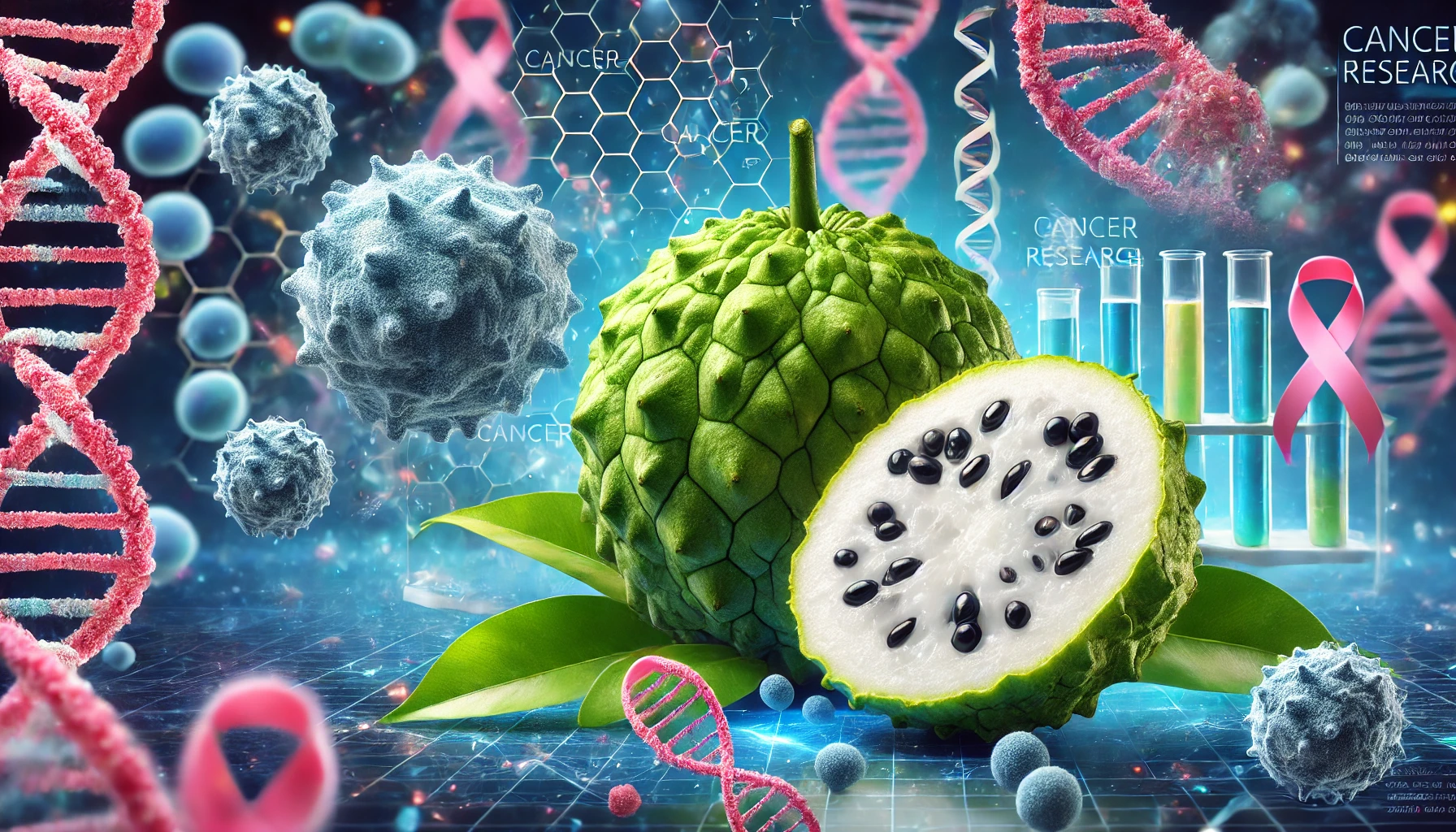This post was written with Consensus AI Academic Search Engine – please read our Disclaimer at the end of this article. Graviola, also known as Annona muricata or soursop, has been traditionally used for its medicinal properties. Recent studies have explored its potential as an anti-cancer agent, particularly in breast cancer. This article reviews the current understanding of graviola’s effects on cancer, focusing on its mechanisms of action, therapeutic potential, and combination with other treatments.
Mechanisms of Action
Graviola exhibits its anti-cancer effects through multiple mechanisms. One of the primary pathways is the induction of apoptosis, or programmed cell death. In a study on DMBA-induced breast cancer in rats, graviola administration significantly upregulated pro-apoptotic genes such as BAX, P53, and caspase-3, while downregulating the anti-apoptotic gene BCL2 and estrogen receptor alpha (ER-α)1. This suggests that graviola can trigger cell death in cancerous cells, thereby inhibiting tumor growth.
Additionally, graviola has been shown to enhance antioxidant activity. The same study reported increased levels of antioxidant enzymes like glutathione peroxidase, catalase, and superoxide dismutase, which help in reducing oxidative stress and lipid peroxidation in breast tissue1. This antioxidant property further contributes to its anti-cancer effects by protecting cells from DNA damage.
Therapeutic Potential
Graviola’s therapeutic potential extends beyond its apoptotic and antioxidant activities. In another study, graviola was found to mitigate hepatic and renal damage in rats with DMBA-induced breast cancer, indicating its protective effects on vital organs2. This is crucial for cancer patients undergoing chemotherapy, as it suggests that graviola could help in reducing the side effects of conventional treatments.
Moreover, graviola has shown promise in combination therapies. A study investigating the combined effects of graviola leaves extract and metformin on breast and prostate cancer cell lines found a synergistic effect on breast cancer cells and an additive effect on prostate cancer cells4. This indicates that graviola could enhance the efficacy of existing cancer treatments, making it a valuable adjunct therapy.
Comparative Studies
Comparative studies have also highlighted graviola’s effectiveness relative to other treatments. For instance, in a study on ulcerative colitis, graviola was found to be as effective as sulfasalazine in reducing colonic damage and oxidative stress5. This suggests that graviola’s anti-inflammatory and antioxidant properties could be beneficial in treating other inflammatory conditions, potentially including cancer.
In another study, graviola was compared with nano-magnetic particles (NFe3O4) for their protective effects against adriamycin-induced gonadotoxicity. The results showed that both graviola and NFe3O4 significantly improved antioxidant enzyme levels and reduced lipid peroxidation, indicating their potential in mitigating chemotherapy-induced side effects6.
Conclusion
The current body of research suggests that graviola holds significant promise as an anti-cancer agent. Its ability to induce apoptosis, enhance antioxidant activity, and protect vital organs makes it a compelling candidate for further investigation. Additionally, its potential in combination therapies could pave the way for more effective cancer treatments. However, more clinical studies are needed to fully understand its efficacy and safety in humans.
Disclaimer
The content presented in this blog is generated by Consensus, an AI-powered academic search engine, and is based on publicly available scientific literature. While every effort is made to provide accurate, up-to-date, and well-researched information, the content is intended for informational and educational purposes only. It does not constitute medical advice, diagnosis, or treatment. Always consult a qualified healthcare professional before making any decisions regarding medical conditions, treatments, or medications. The AI system’s analysis may not cover all perspectives, emerging research, or individual cases, and it is not a substitute for professional expertise. Neither the blog publisher nor the developers of the AI-powered search engine are responsible for any actions taken based on the information provided in this content. Use of this information is at your own risk. Citations to the original scientific studies are included for reference, but these studies should be reviewed in full and interpreted with the guidance of a healthcare or research professional.
If you are experiencing a medical emergency, please seek immediate attention from a healthcare provider.
